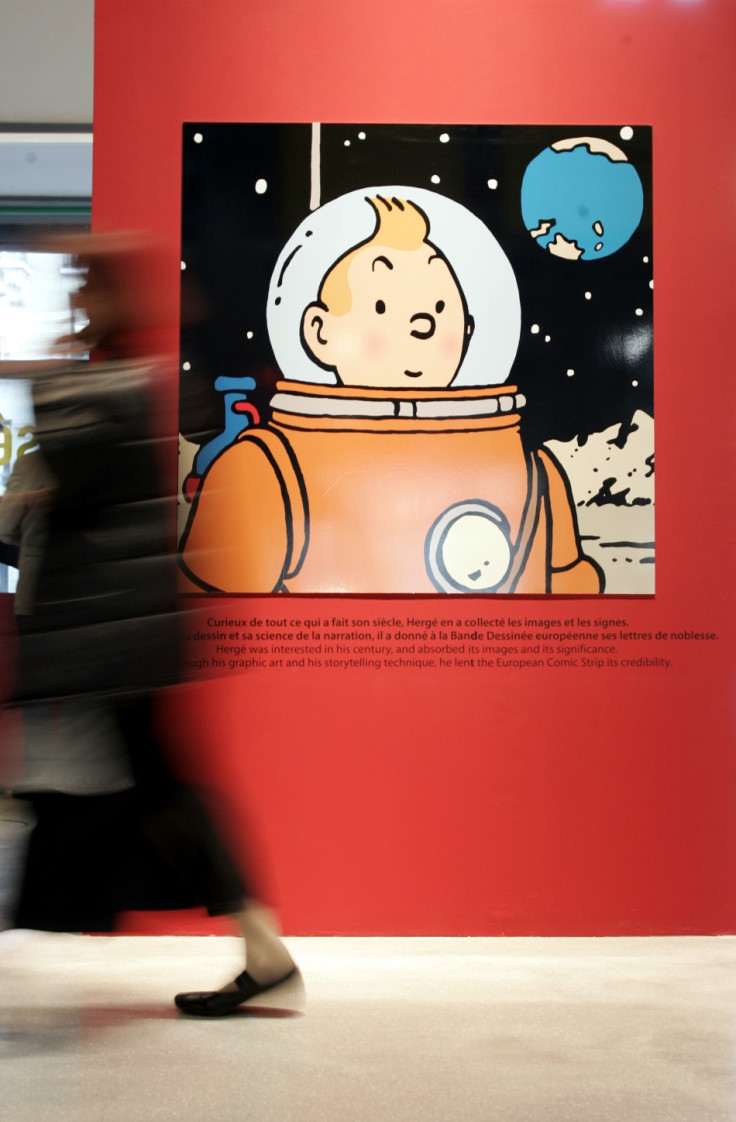Tintin Book Not Racist, says Court

One of Tintin's classic adventure books has been moved to adult shelves of bookshops because it is deemed racist.
Fears that Tintin In The Congo could have negative impacts on children have also led publishers to sell the book in shrink-wrap packaging complete with a warning label across the front cover.
But a Belgian judicial advisor has recommended the country's courts reject a legal bid to have the book banned for racism, court documents showed.
Valery de Theux de Meylandt, a Belgian Procureur du Roi whose opinion is requested and typically followed by the court, advised judges in a written statement to rule against campaigner Bienvenu Mbutu Mondondo's application to have Tintin In The Congo banned for racism, Reuters reported.
De Theux de Meylandt said Tintin author, George Remi, known as Herge, did not intend to incite racial hatred when he depicted his cartoon hero on an adventure in the former Belgian colony in a 1931 work that was updated in 1946.
"The representations (of African people) by Herge are a reflection of his time," de Theux de Meylandt wrote.
Written in 1930, Tintin In The Congo depicts native Africans as ignorant, simple and far less intelligent than their white visitors. Not published in English until 2005, the book shows the black population bowing down to Tintin, worshipping Tintin and his dog Snowy like gods, and portrayed as stupid with big, thick lips.
Intention is a key criteria in validating a charge of racism. The Belgian court is expected to deliver a judgement rejecting or accepting Mondondo's argument that the book's depiction of Africans is racist.
Leading UK booksellers such as Waterstones have removed the book from the children's section and relocated them to adult graphic novel areas. Publisher Egmont UK have placed a protective strip around the book containing a warning about its content. The label warns readers the book contains content that some people "may find offensive" because Herge's portrayal of the Belgian Congo reflected "the colonial attitudes of the time" and "stereotypes of the period."
The Campaign for Real Education has condemned publishers as "over the top" for deciding to package one of Tintin's early adventures, along with a warning about its content.
"As long as children understand times have changed it seems ridiculous to separate this book into the adult section. Much of children's literature is extremely graphic and sexually explicit these days and no one seems to bother about that," campaign secretary Nick Seaton told the Daily Mail.
"It is another example of political correctness gone mad. All these silly attempts at censorship do not do a lot of good," he added.
The restrictions and criticisms come as new fans enjoy Steven Spielberg's movie, The Adventures of Tintin: The Secret of the Unicorn, where attention on the character and the books has never been higher.
Tintin In The Congo scenes considered inappropriate:
- Arriving by train, Tintin is welcomed by thick-lipped Africans who are waiting looking puzzled and ridiculously dressed in Western clothing
- An image of a black woman bowing to Tintin and saying 'White man very great...White mister is big juju man'.
- The Africans carry Tintin in a bamboo mounted chair to meet their king, who is dressed in leopard skin, puffing a pipe and holding a rolling pin as a club
- The book ends with a snapshot of the village where idols of the "all powerful" Tintin and his dog Snowy are being worshipped. One villager remarks: "In Europe all young white men is like Tintin."
© Copyright IBTimes 2025. All rights reserved.





















